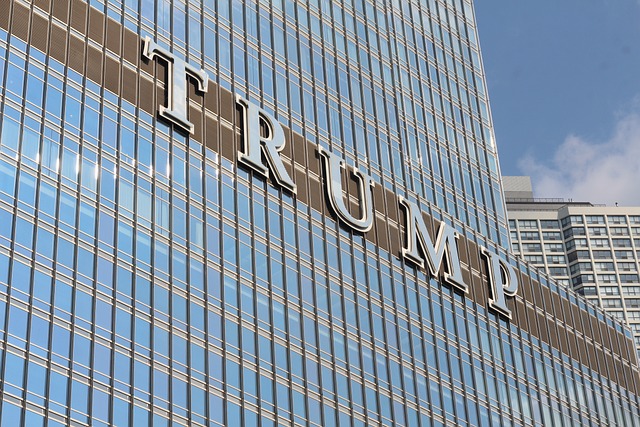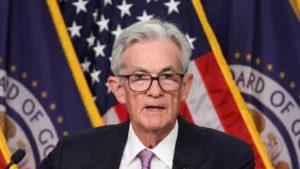
trump-tower
In a legal saga that continues to shape the political and business landscape of the United States, Donald Trump is appealing a $489 million civil fraud verdict. The former president, known for his extensive business empire, faces a financial judgment that could significantly impact his wealth. This case revolves around allegations that Trump and his company inflated the value of assets on financial statements to obtain favorable loans. With Trump set to challenge the verdict in a New York appeals court, the nation is watching closely as this case unfolds.
We will dive into the key aspects of the case, Trump’s legal defense, the potential repercussions, and why this case matters to the broader political and legal landscape in America.
The Backstory: How Did We Get Here?
The case against Donald Trump stems from an investigation initiated by New York Attorney General Letitia James in 2019. The probe focused on allegations that Trump had manipulated financial documents, specifically overstating the value of assets, including real estate properties and golf courses, to secure loans and other financial benefits.
After extensive investigation and litigation, a New York court ruled in favor of the state’s claims in early 2024. The court found Trump guilty of civil fraud and ordered him to pay a staggering $489 million in damages. This ruling represents one of the most significant financial penalties imposed on Trump’s business empire.
However, Trump has consistently denied any wrongdoing, calling the case politically motivated. As the case now heads to the appeals court, Trump’s legal team is fighting hard to overturn the verdict, hoping to protect his assets and reputation.
What Are the Allegations?
The civil fraud case centers around accusations that Trump and his company, the Trump Organization, deliberately inflated the value of multiple properties on financial statements. These overstated valuations allegedly allowed Trump to secure loans from major financial institutions on more favorable terms than he otherwise would have received.
Some of the key properties in question include:
- Trump Tower in Manhattan: The iconic building was allegedly overvalued by hundreds of millions of dollars.
- Mar-a-Lago: The Florida resort was also reportedly used in the fraudulent valuations, with its value allegedly overstated to obtain better loan rates.
- Golf courses: Several of Trump’s golf courses across the U.S. and Europe were allegedly overvalued in financial documents.
These inflated valuations, according to the New York Attorney General’s office, were part of a pattern of deception designed to benefit Trump and his company financially, at the expense of lenders and the public.
Trump’s Defense: Political Targeting or Legitimate Case?
Throughout the trial, Donald Trump has maintained his innocence, repeatedly claiming that the case is nothing more than a politically motivated witch hunt. Trump argues that his valuations were legitimate and that real estate appraisals often involve subjective judgments about a property’s worth.
Moreover, Trump’s legal team asserts that lenders never lost money on the loans in question, and that the banks involved were sophisticated institutions fully capable of conducting their own due diligence. They also argue that the New York Attorney General’s case is driven by a desire to damage Trump’s political career and business interests.
Trump himself has taken to social media and public rallies to criticize the case, often framing it as an example of partisan attacks against him. He claims that the New York legal system is biased against him due to his status as a former president and potential 2024 Republican candidate.
The Appeals Process: What’s Next?
As Trump prepares to appeal the $489 million judgment, his legal team faces an uphill battle. The New York appeals court will review the lower court’s ruling and determine whether any legal errors were made during the trial.
Key points the court will consider include:
- Procedural fairness: Trump’s team will argue that the trial process was unfair, citing issues such as jury selection and pretrial rulings.
- Evidence and witness credibility: The appeals court will review the evidence presented at trial, including the financial documents and witness testimony, to determine if the lower court’s findings were supported by the facts.
- Legal interpretation: The appeals court will also assess how the trial judge interpreted the laws governing civil fraud and asset valuation.
The outcome of the appeal could take months to reach, but it will have far-reaching implications for Trump’s financial future and his business empire.
The Stakes: Why This Case Matters
The $489 million verdict is more than just a financial blow to Trump. It has broader implications for both his personal fortune and his political prospects.
- Financial Impact: If the verdict is upheld, Trump could face severe financial strain. While he is known for his wealth, the loss of nearly half a billion dollars would put significant pressure on his business operations. This could also affect his ability to invest in new ventures and properties.
- Political Ramifications: The case comes at a crucial time as Trump contemplates a potential 2024 presidential run. If he loses the appeal, the ruling could weaken his political standing by portraying him as a businessman who engaged in fraudulent activities. On the other hand, if he wins the appeal, Trump could claim vindication and use it as a rallying point to bolster his support base.
- Precedent for Future Cases: This case could set a legal precedent for how civil fraud cases involving high-profile figures and businesses are handled in the future. The legal principles established in this case may influence future litigation involving asset valuations and financial fraud.
- Public Perception: Beyond the courtroom, the case affects how the public perceives Trump. For his supporters, the case is another example of political persecution, while his detractors see it as a long-overdue reckoning for his business practices.
Reactions to the Case
Public and political reactions to the case have been divided along familiar lines.
- Trump supporters: Many of Trump’s loyal supporters view the case as a continuation of the legal and political harassment he has faced since leaving office. They believe that Trump is being unfairly targeted by a legal system that is biased against him due to his political views.
- Critics of Trump: On the other hand, Trump’s critics argue that the case is a justified response to years of financial misconduct. They view the $489 million verdict as an appropriate penalty for a businessman who, they claim, has long manipulated the system to his advantage.
- Legal analysts: Experts in the legal community are closely watching the appeal to see how the courts will navigate the complex issues of asset valuation and financial fraud. Some analysts believe that Trump faces a steep challenge in overturning the verdict, while others think his legal team has raised valid points about the subjective nature of property appraisals.
Conclusion: A Long Road Ahead
As Donald Trump appeals the $489 million civil fraud verdict, the nation is left to ponder the potential outcomes of this high-stakes legal battle. With his financial empire and political future on the line, Trump is gearing up for a protracted fight in the courts. Whether the appeals court sides with Trump or upholds the lower court’s ruling, this case will have a lasting impact on both his personal fortunes and the broader U.S. political landscape.


